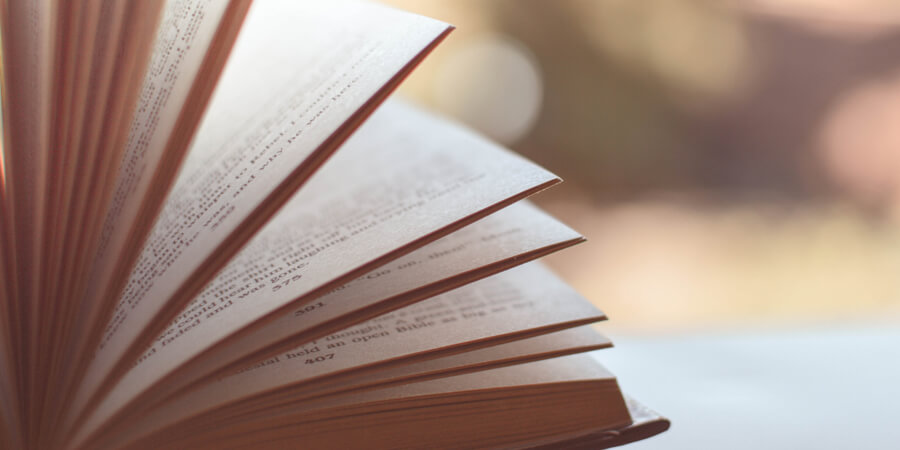
Course information
Literature (T) provides students with the opportunity to study literature at an intensive level and aims to engage students in the detailed study of literary texts. It builds on the knowledge and skills developed in the Foundation to Year 10 curriculum. Literature deepens students’ understanding of conventions common to different types of composition, and refines their understanding of the effects of language through shared experience of texts and the creative process. Learning to appreciate literary texts, and to create their own, enriches students’ understanding of human experiences and the capacity for language to communicate those experiences.
Post-school pathways
Do you enjoy or are you good at English? (pdf, 110kb)
Workload expectation
Three hours outside of class per week to complete homework and assignments.
Course pattern
Available as a Minor or Major. Major-Minor or Double Major if combined with English T.
Suggested Minor course
Semester | Unit |
|---|---|
1 | Unit 1: Ways of Reading and Creating |
2 | Unit 2: Intertextuality |
Suggested Major course
Semester | Unit |
|---|---|
1 | Unit 1: Ways of Reading and Creating |
2 | Unit 2: Intertextuality |
3 | Unit 3: Power of Literature |
4 | Unit 4: Literary Interpretations |
Suggested Major-Minor course
Semester | Unit |
|---|---|
1 | English Unit 1: Communication of Meaning |
2 | English Unit 2: Representations Through Texts |
Suggested Double Major course
Semester | Unit |
|---|---|
3 | English Unit 3: Comparison of Texts |
4 | English Unit 4: Perspectives |
Unit descriptions
Unit 1: Ways of Reading and Creating – ‘Shakespeare, Plays and Poetry’
Unit 1 aims to explore the fundamentals of poetic and dramatic form and context with an emphasis on the work of William Shakespeare. It provides students with a thorough grounding in the techniques of rhyme and metre, focusing on the ways in which the sonnet form has been adapted to suit different moods and ideas over the course of the modern world. Students will examine Shakespeare’s Hamlet as the apogee of verse drama and the ways in which the play has affected theatrical practice through to the present day. The second half of the unit re-focuses Shakespeare in the historical context of Elizabethan drama: it uses the comedy, Twelfth Night, to showcase the reasons for the Elizabethan-Jacobean period as the finest flowering of theatrical energy in history.
Unit 2: Intertextuality – ‘Literature of the Romantic Period’
Unit 2 will examine the emergence of the idea that humans are inexorably linked to nature. At the turn of the century, fired by ideas of personal and political liberty and of the energy and sublimity of the natural world, artists and intellectuals sought to break the bonds of 18th-century convention. Writers and artists searched for a meaning in life whilst grappling with a burgeoning industrialisation of the Western World and an inexorable movement away from nature - the very thing that sustained and gave life. Students will explore the works of such writers as Wordsworth, Coleridge, Keats and Shelley and explore the very nature of humanity as on one hand, it was reshaped by the advancement of technology, science and learning and yet on the other, discovering the miracle of the simplicity of life.
Unit 3: Power of Literature – ‘Modern Literature’
Unit 3 will focus on the literature that emerged in the early twentieth century, spanning the period that saw the advent of the Great War and its aftermath. The modernist literary movement was driven by a desire to overturn traditional modes of representation and express the new sensibilities of the time in the light of a broad reassessment of the prevailing assumptions about society. Students will explore a range of literary texts that reflect these changing paradigms, with a focus on novels, plays, poetry, short stories and other forms of free form artistic expression in music and painting.
Unit 4: Literary Interpretations – ‘Contemporary Literature’
Unit 4 focuses on the ways in which theoretical frameworks developed in the late twentieth-century directly inform the creative expression of authors themselves. From Nabokov to David Foster Wallace, from Roland Barthes to Michel Foucault, students will examine the ways in which theorists deconstruct the idea of the author as they explore the questions that frustrate creative and literary art as it exists in today’s aesthetic climate. A sub-theme of the unit is the voice of the displaced or dispossessed outsider – the European émigré in the west and the post-colonial search for identity – as they connect to New Historicist and Cultural Materialist theories of literature and selfhood.
